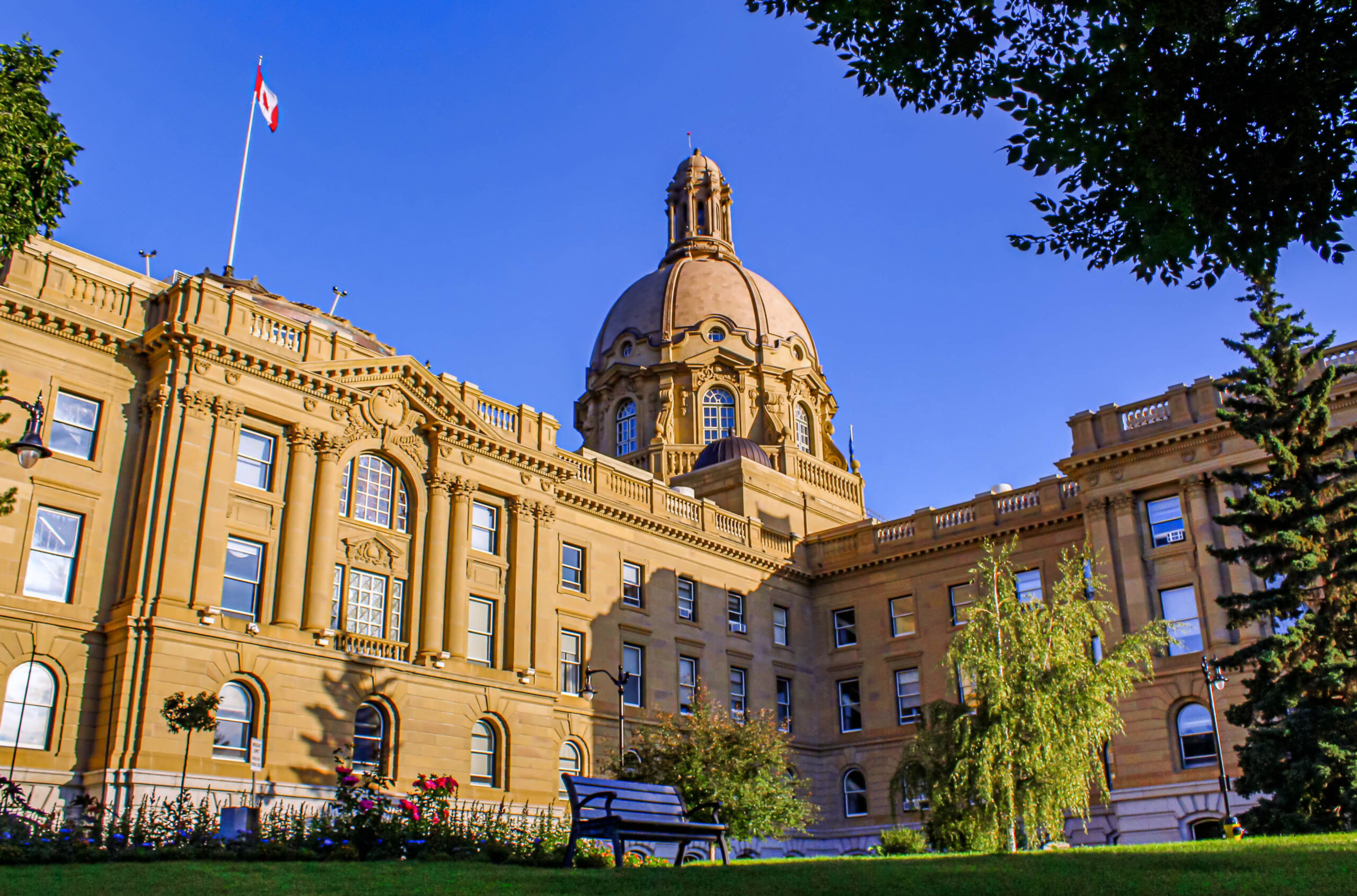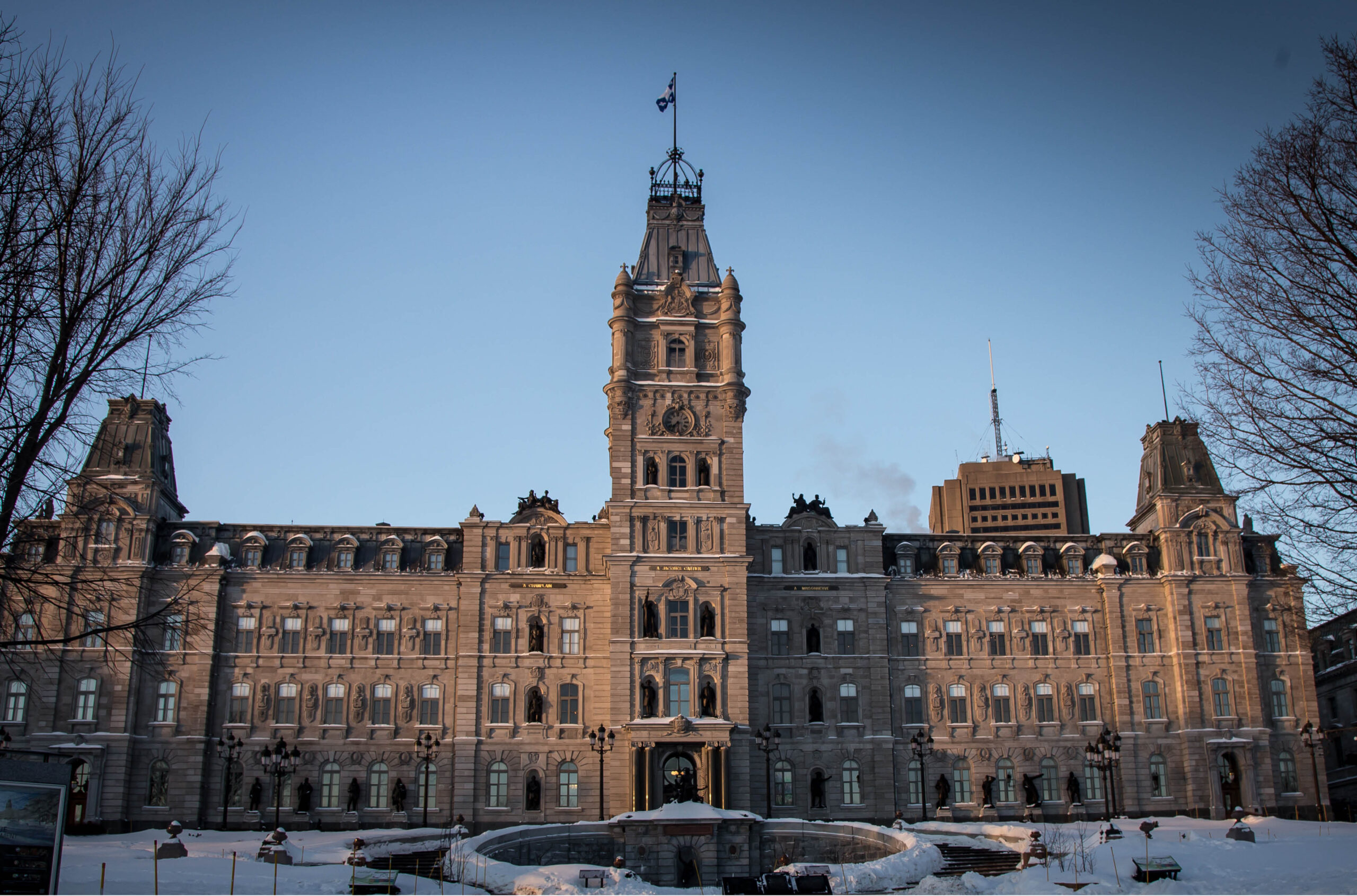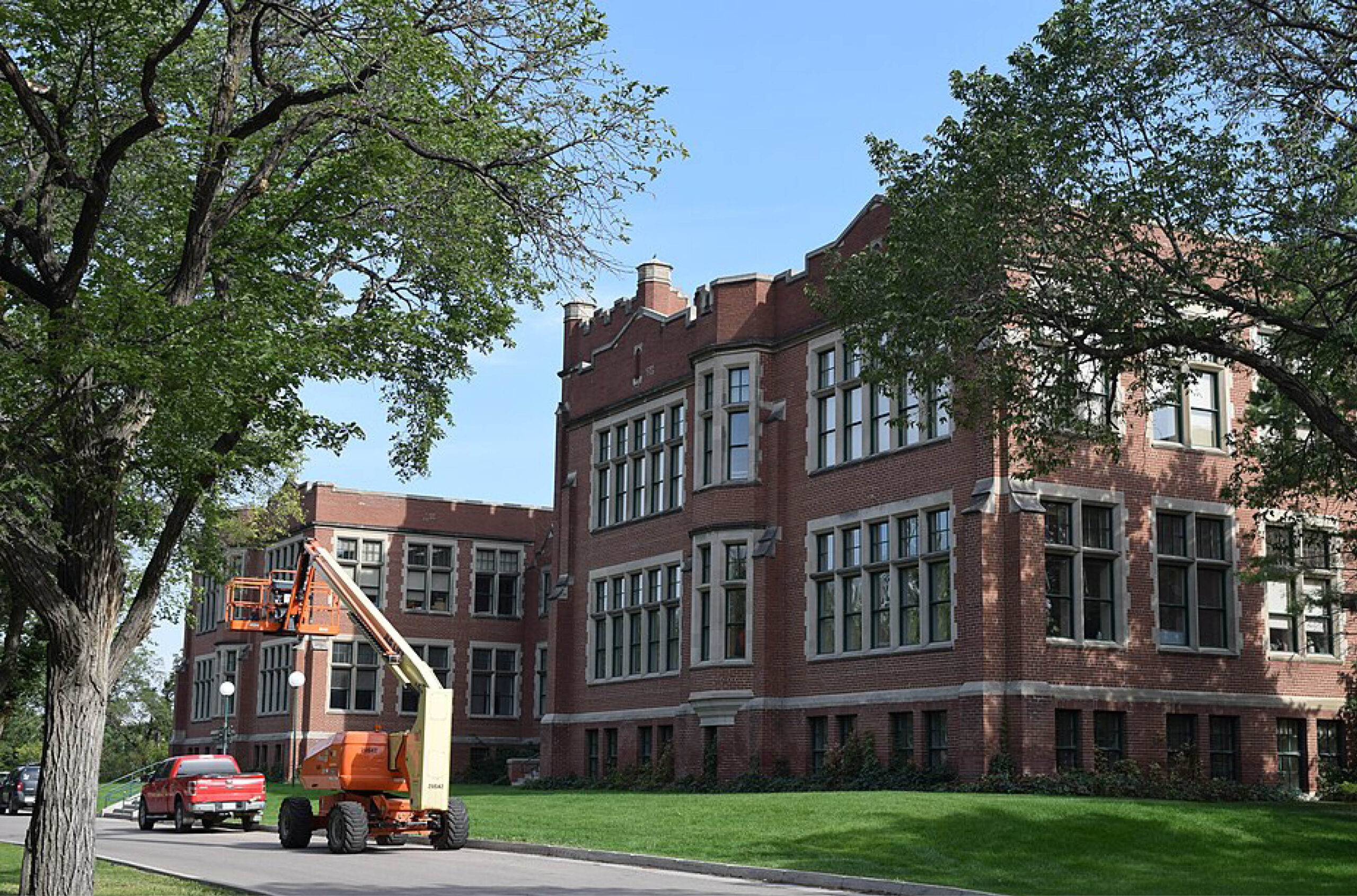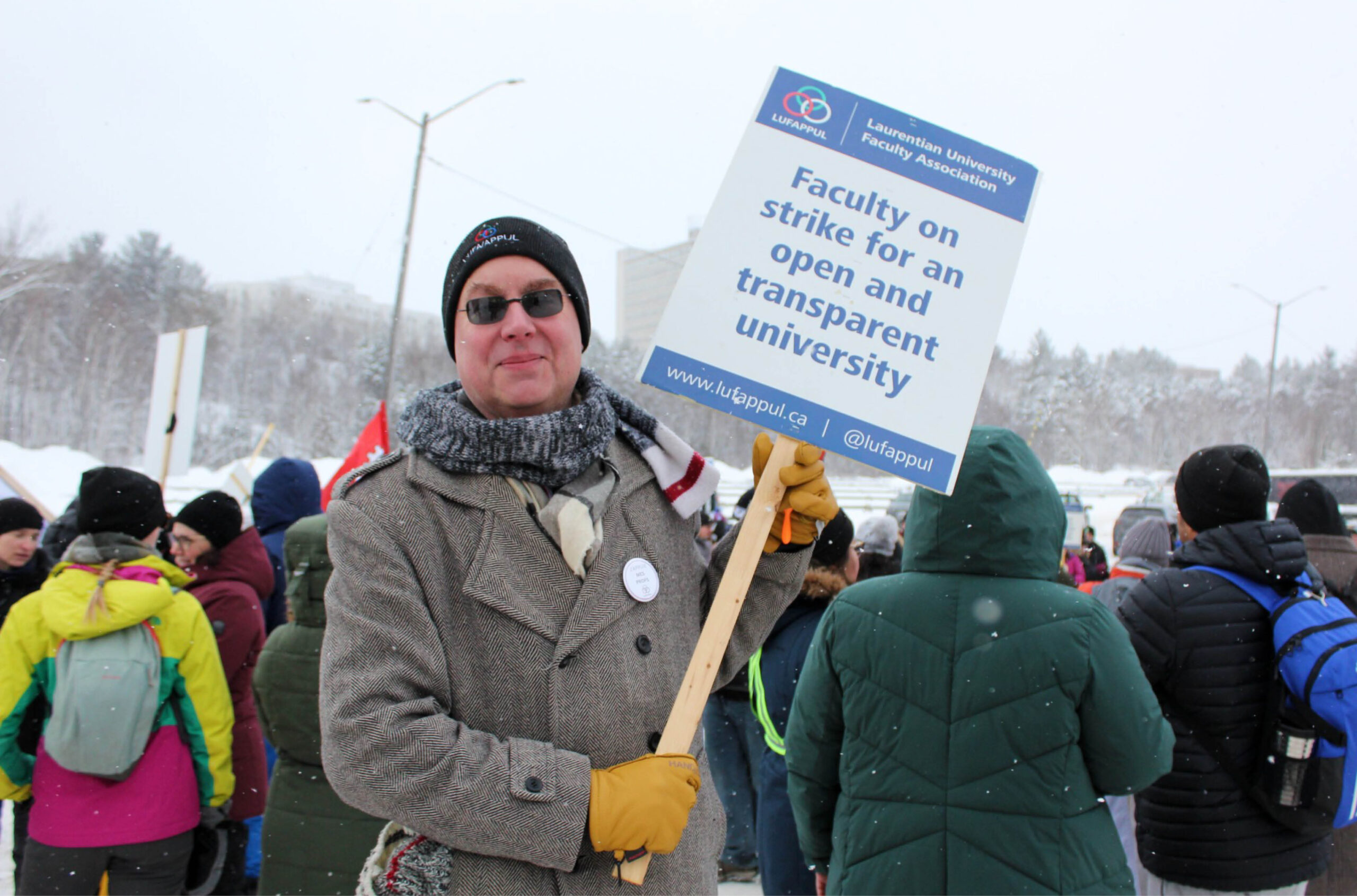Alberta panel recommends new funding framework, dropping EDI
The much-anticipated Mintz report lays out 11 recommendations for transforming the province’s post-secondary sector.

A panel examining post-secondary funding and the competitiveness of Alberta’s post-secondary education system released its much-anticipated final report last Friday, Oct. 9, detailing 11 recommendations to reshape the province’s post-secondary system. The recommendations from the five-member panel, chaired by economist Jack Mintz, focus on four areas: a new funding framework; tuition changes; increasing institutional autonomy and reducing red tape; and institutional neutrality and equity, diversity and inclusion (EDI) initiatives.
Among other changes, the panel recommends tying funding to labour market demand and government priorities; lifting the current cap on tuition fee increases; giving post-secondary institutions more operational autonomy; and requiring institutions to remain neutral on political issues and to rein in EDI initiatives.
If the report’s recommendations are enacted, the results could be transformational for Alberta’s post-secondary institutions and students, said Melanie Humphreys, president of The King’s University in Edmonton and chair of the Alberta Post-Secondary Network (APSN), comprised of the presidents of Alberta’s 26 post-secondary institutions.
“There’s resounding positivity across APSN,” said Dr. Humphreys. “A redesign of this scope and scale is going to be majorly complex, but we’re really excited to do that work and provide some expertise and make sure our system is sustainable into the future.”
“From everything we’ve seen in the document, we have some very healthy optimism,” echoed Joe Mooney, chair of Alberta Students’ Executive Council, representing more than 90,000 students in the province.
But while there’s much to like in the panel’s report — especially the recommended funding framework — there’s also a red flag, warned Lee Easton, president of the Confederation of Alberta Faculty Associations (CAFA), which represents more than 3,000 academic staff members at four universities. Dr. Easton said CAFA is “deeply concerned” about the report’s final recommendation focused on institutional neutrality and EDI initiatives.
Alberta’s Minister of Advanced Education Myles McDougall told University Affairs that the government will consider the report and consult with stakeholders. He said some of the report’s recommendations could be implemented soon, while others may take years to put in place. “The report talks about an implementation of over a five-year period. Frankly, I am interested in faster than that.”
Mr. McDougall added, “I consider advanced education to be an economic portfolio, and the report — in terms of ensuring and prioritizing our efforts in educating and training the workforce of tomorrow — is part of that important pillar for economic developer of our province.”
A new funding framework
The bulk of the panel’s report focuses on a new funding framework. Of Alberta’s current funding approach, the report states: “There is, in fact, no funding model, only year-over-year adjustments that reflect historical allocations and the province’s current financial situation but do not adequately address the current realities or challenges institutions face.”
The panel calls for a new funding approach to be phased in over the next five years, with three components: enrolment (taking into account enrolment, costs of programs, market demand and government priorities); performance (rewarding outcomes in teaching, student experience, research, and community impact) and base funding (addressing costs such as staffing, IT, and physical maintenance).
The report also recommends the government introduce “targeted, time-limited funding initiatives” to attract top research talent, support innovation, and facilitate collaboration among institutions.
“First of all, having a model is a good thing,” said CAFA’s Dr. Easton. “We’re hoping that the government accepts the recommendations and picks up that model.”
Dr. Humphreys, with APSN, said it’s been challenging to deliver the quality of education that Albertans deserve under the existing funding model. “Alberta is a growing province, and we’re experiencing increases in our student enrolment. But how do we provide those spaces?” The report projects total enrolment to grow by 21 per cent by 2033-34.
The panel’s report addresses those challenges, she said. “We’ll have to be diligent in making sure that that transformation actually occurs, because what [the panel] identified is something that we haven’t attempted before. It would be easy to slide back into a system where the funding slides back into old models.”
A new approach to tuition
The report recommends a new tuition approach that it says balances certainty for students with increasing costs for institutions. It recommends replacing the current 2 per cent cap on all annual tuition fee increases. First-year students would be guaranteed that their tuition would not increase by more than 2 per cent per year for the duration of their program, but institutions would have the autonomy to set the tuition rate for new, first-year students, up to a maximum amount set by the provincial Ministry of Advanced Education. The panel’s report also recommends the provincial government provide more financial help to students, in the form of non-repayable grants and scholarships.
“We’re also pretty pleased about the guaranteed tuition model,” said Julia Law, vice-president external of the University of Calgary students’ union. “There’s some concerns in terms of what exactly that number is going to be. However, if every recommendation is taken as a whole, I think this could provide a lot of security for students and help them in this time when tuition keeps going up and up and up.”
Ms. Law also welcomed more financial help for students. “The biggest thing that we’re happy to see is changes on student assistance,” she said. “Students in Alberta graduate with significantly more debt than anywhere else in the country, so non-repayable assistance means quite a lot.”
The report also recommended that the province continue to lobby the federal government in favour of international students.
Enforcing neutrality and dropping DEI
In its 11th recommendation, the report states that the government should expect all publicly-funded post-secondary institutions to adhere to the principle of institutional neutrality, Citing the University of Chicago’s 1967 Kalven Report, the panel opines that it is not open to institutions, or to their senior administrators, to publicly take sides on political questions.
The report also examines EDI in the admission and hiring practices of post secondary institutions. While stating that it supports special provisions for Indigenous Peoples, the panel takes the position that, otherwise, institutions should not discriminate in hiring or admissions based on factors such as race or gender. “Although there may be exceptional cases for setting aside seats for persons from designated groups (e.g. Indigenous students or students from rural areas of the province), the freedom of individuals from discrimination on grounds enumerated in the Canadian Charter of Rights and Freedoms and the Human Rights Act is a first principle in the Canadian Constitution and must be honoured in all public post-secondary institutions,” the report states.
“The Panel’s concern is that our institutions are losing the public’s support in the area of EDI and when post-secondary institutions take political positions on controversial issues.”
Dr. Easton, of CAFA, said he’s concerned that Recommendation 11, if implemented, will interfere in universities’ autonomy and force post-secondary institutions to commit both to neutrality on controversial issues, and to hiring based on merit with no equity considerations (with the exception of Indigenous candidates).
“We’re concerned about the implications for academic freedom, we’re concerned about the implications for access, and we’re concerned about the implications for accommodation,” said Dr. Easton.
But Minister McDougall said he’s heard a lot of positive responses to the recommendation. “On behalf of myself, personally, and pretty well everyone that I have had conversation with so far, they’re supportive of those types of principles.”
Originally conceived to focus on funding, the panel’s detour into institutional neutrality follows a September mandate letter from Premier Danielle Smith that charges Minister McDougall to work with the Ministry of Justice to assess the need for legislation protecting academic freedom and freedom of expression on campuses.
The report also recommends that the government cut down on red tape, give institutions more autonomy in raising revenue, and speed up the process of approving new programs.
Next steps up to the government
The panel, announced by the Alberta government in November 2024, engaged with representatives from 26 post-secondary institutions, faculty associations, student associations and industry organizations. In addition to Mintz, four other panel members were appointed: Charlene Butler, Ray Block, Joan Hertz and Peter MacKinnon.
This latest panel follows a sweeping review in 2020 of Alberta’s post-secondary education system, led by the consulting firm McKinsey & Company. The following year, the government unveiled its 10-year strategy for post-secondary education in Alberta, titled Alberta 2030: Building Skills for Jobs. The document emphasized applied job training, careers in trades and the commercialization of research.
It remains to be seen if and how the Alberta government will act on the Mintz panel’s recommendations.
“The report as a whole is really good,” said Ms. Law, with the University of Calgary Students’ Union. “But individual recommendations on their own — if implemented just individually — won’t do enough to completely solve the issues that we’ve been seeing in Alberta’s post-secondary system since 2019 or so.”
“Our process from here on in is going to be of consultation,” said Minister McDougall, who once served as president of the Students’ Union at the University of Calgary and vice-chair of the Canadian Federation of Students. “We’ll be talking within government about these recommendations, but that will be done conjointly with discussion with various stakeholders, with post secondary institutions, with students, with private sector and nonprofit sector, about what kind of graduates and training and skills are required from the institutions and how we can prioritize limited resources in the pursuit of the priorities of the stakeholders and the taxpayers of Alberta.”












Post a comment
University Affairs moderates all comments according to the following guidelines. If approved, comments generally appear within one business day. We may republish particularly insightful remarks in our print edition or elsewhere.
2 Comments
The stated call for institutional neutrality shows a deep (and, one wonders, perhaps also a deliberate) misunderstanding of how universities and education more broadly actually function. No education is neutral, as education necessarily focuses on specific topics, regions, persons, and stories told from particular points of view. Without an adequate understanding of how education actually functions, these calls for neutrality will obscure such fundamental issues, to the detriment of universities and the people who breathe life into them.
I think the issue, as seen from the outside, is that academe has returned to its religious roots with the embrace of social justice fundamentalism. The social justice part is fine, but the fundamentalism part leads to the telling of lies, and the insistence that people (pretend to) believe them in order to remain in the academy. This is a public refutation of the idea that universities are truth seeking institutions
Academics in Canada and around the world have lost their jobs for stating that trans women are men, that we haven’t yet found any bodies buried near our residential schools, and that how well one does on a particular set of multiple choice questions is highly correlated with one’s success in life, is partly heritable, and seems to depend in some part on the environmental and social challenges faced by one’s ancestors.
Do academics really find it impossible to accept these statements as true and at the same time advocate for social justice?